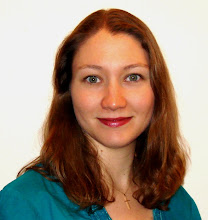Everyone else has had such great comments, I'm afraid of plagiarizing their ideas! =) So I'll just give you the running commentary I had in my head as I was reading the first chapter last night: a collection of thoughts and reactions. I didn't have as much internal talk-back for the second chapter.
(18) Two of the most absolute, least CYA statements I've ever seen in academic writing: "All definitions of plagiarism will therefore always be contested," and "Plagiarism can never be remedied; it can never be fixed." Interesting how the author we're labeling postmodern is making such blanket modernist statements.
(20) Yeah, it may be ironic that plagiarism is so foundational yet so hard to define, but that's hardly an earthshattering idea. Everything important or foundational is hard to define, b/c multitudes of people experience the critical-vital thing in lots of different ways. Take love, or money, or marriage, or...? What does it mean and how does it function? Or take something more analogous to plg: what exactly constitutes murder, and what doesn't? The ambiguity is just part of its being a big important idea, I think.
(23) "everyone fears the plagiarists," No, just the people who have something to lose. Whether that's status, money, rights, sense of professionalism and integrity, etc. But I think there are plenty of people who don't fear pl. or even care much about it -- those people who don't see themselves as producers or accountable recyclers.
(26) The whole thing about pl. in teachers' lectures is ridiculous. Teachers/Professors don't try to represent the information/ideas as uniquely their own: they are intended to represent mastery of a subject or discipline. If you read widely and deeply, w/o a photographic memory, your mastery of the content will grow, but your ability to recall which specific author taught you which specific thing will shrink and become irrelevant. The only exceptions are things we already do: we "cite" Krashen's ideas about affective filter and I+1, for example. As for the body of knowledge, no one needs the citations that would go into it: they would be impossible to create and useless to receive.
(27) All learning as plagiarism? Now this conversation has gone completely over the edge past anything useful. I guess that's Howard's point, though I've never met anyone who actually believes that uncited learning = plagiarism (at least, who would admit it out loud).
(28) Gatekeeping: One struggle here is that we want the credential, diploma, grade, etc. to mean something. We argue about what it ought to represent, but educators usually agree that it ought to represent something, and this is necessarily gatekeeping. I had an experience with this at the first school where I taught: I argued that they shouldn't walk at graduation if they were missing more credits than they could make up in the summer. I also volunteered to tutor these students in academic assistance every advisory-lunch period for the rest of the school year to ensure that they made it -- all but one did, and there were serious medical concerns there. I thought graduation ought to signify some kind of accomplishment, and I can't apologize for that.
(30) Isn't it possible to see the purpose as helping students gain access, achieve success within the current model and/or work to change it using existing tools? I may not stand in favor of the "cultural system of textual purity," but I know my students have to learn to navigate it if they want to all-important signifiers like diplomas plus the security of unreproachability. (Is that a word?) How does it help them if I pretend that's not true, or I don't push the skills they need to operate in that system?
Y'all are the best!
16 years ago

FIRST!
ReplyDelete(hat-tip to Scot!)
Interesting reactions, Elissa. I think you do a good job of pointing out some contested areas in Howard's argument. Her article really got me to consider how we do or don't define plagiarism. Even though I agree with you that foundational ideas are often difficult to define, I find it interesting that in academic realms, most people have developed their own working definitions of plagiarism. I find this to be the case at my school: different teachers define plagiarism in very different ways, and these definitions seldom link up with the students' own conception of what is and what isn't plagiarism. I would guess that most of my colleagues would consider plagiarism an objective phenomenon, but I'm not sure that's the case.
ReplyDelete